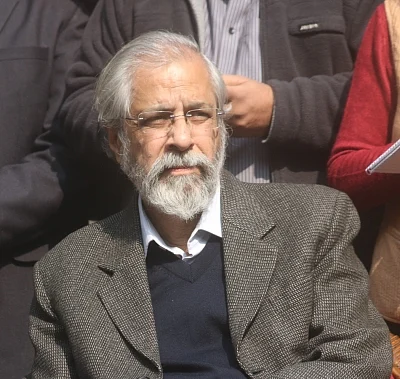By Sumit Saxena
New Delhi, Nov 30 (IANS) Former Supreme Court Justice Madan B. Lokur says key challenges before the newly appointed Chief Justice S.A. Bobde will be to remove the fear of the Collegium from among the judges.
"Remove the fear of the Collegium -- banishment through transfers must be avoided. There are so many better ways to make constitutional authorities accountable," Justice Lokur told IANS in email response.
"The judges have nothing to fear but fear itself," said Justice Lokur in response to a query as to how can being judges of the High Court and Supreme Court become an attractive proposition.
"Announce that the judges will stand up to anything that impinges on the independence of the judiciary but the system must nevertheless always be accountable," he added.
Chief Justice Bobde took oath of office on November 18, after the retirement of Chief Justice Ranjan Gogoi on November 17.
Citing the biggest challenge before the new Chief Justice, Justice Lokur said that the challenge he will face is maintaining trust, credibility and faith that the citizens continue to have in the impartiality of the judiciary.
"This has been eroded in the past and if the new Chief Justice falters, we are in for serious trouble and the independence of the judiciary will take a huge hit from which it might not recover," he added.
Justice Lokur emphasized that expectations are high when it comes to the judges of the Supreme Court and also on each judge of various High Courts.
Responding to a query, can the Chief Justice set an example by taking an honest decision as per law, and having it trickle down to the lowest level, Lokur said: "It is not only the CJI who has to set an example -- it is every judge in the Supreme Court and each High Court...
"The saying that justice must not only be done but it must also appear to be done is very profound. If it is believed that justice does not appear to be done, the trickledown effect can be contagious, with devastating consequences."
Sharing his views on the quality of justice in the backdrop of huge pendency, Lokur said there are many solutions.
"First is to ascertain the magnitude of the problem. My personal view is that though the problem is huge, it is not unmanageable.
"Second, plan out the strategy to tackle the problem and not give off-the-cuff solutions.
"Third, implement the solutions by taking everyone on board. I repeat, the problem can be managed and it has not gone out of control."
Speaking about the recent judgement by the Supreme Court on riders having been placed while bringing the Chief Justice office under the Right To Information (RTI), Lokur said: "Transparency, in principle, is very good and must be encouraged. The question is how transparent should the office of the CJI be and in what respect.
"In other words, how and where does one draw the balance?
"The initial resolutions of the Collegium gave more information than was advisable. That should have been discussed, but was not -- unfortunately.
"Later, to some extent, there was back-tracking, but now there is a complete clampdown."
He emphasized that each situation will have to be "carefully thought out" by the Supreme Court so that there is consistency in the transparency regime.
Justice Lokur was Chief Justice of the Gauhati High Court and the Andhra Pradesh High Court before being elevated to the Supreme Court. He was recently appointed a judge of the non-resident panel of the Supreme Court of Fiji.
He was on the bench hearing the matters related to healthy environment, securing elephant corridors in Coonoor, clean air in the NCR and lakes and forests across the country.
He played a vital role in setting up of the National Judicial Data Grid (NJDG) to provide an all-India case management system. He was also part of the famous press conference held by four SC judges in January 2018. He retired in December 2018.
(Sumit Saxena can be contacted at sumit.s@ians.in)
--IANS
ss/in
(At The Quint, we question everything. Play an active role in shaping our journalism by becoming a member today.)
